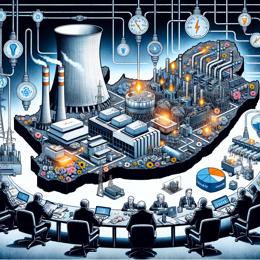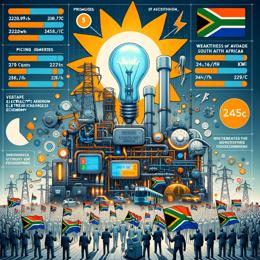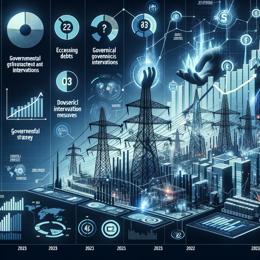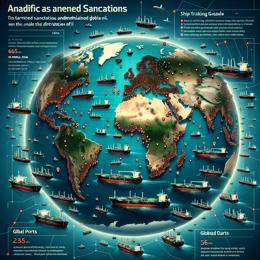Content created by AI
The Power Play: The Karadeniz Powership Controversy Unpacked
Karadeniz Holdings has positioned itself as a dynamic player within the global energy sector, providing immediate solutions to electricity shortages through its expanding fleet of powerships. This rapid growth, although lauded as a commercial success, has been marred by critical examinations of its dealings, raising concerns over the structure and probity of its contracts, particularly with nations in dire need of power.
A dive into the financial health of the company reveals a staggering annual revenue exceeding $1 billion, predominantly accumulated within the past five years. This growth trajectory suggests a heightened embrace of governments burdened with electricity deficits—a narrative that Karadeniz's chief executive Orhan Karadeniz has been candid about. These clients are locked into contracts that are characterized by large upfront payments, demanding government-backed guarantees, and an imposing stance on non-payment repercussions, including the shutdown of power supply.
The company's strategic alignment with Turkish diplomatic interests suggests a synergistic approach that leverages national political relations. For instance, powership deals in Libya and Haiti were announced right on the heels of diplomatic interventions by Turkish President Recep Tayyip Erdogan. In Cambodia, the connection with the Turkish ambassador was directly acknowledged by Prime Minister Hun Sen upon securing a contract.
What stands out is the evolution of Karadeniz's business model from providing stop-gap solutions to exploiting enduring 'emergency' situations. This shift in strategy implies that countries are binding themselves to long-term, costly commitments that may not serve their interests optimally.
South Africa embroiled with the company would represent Karadeniz's white whale, should the multi-billion dollar Risk Mitigation Independent Power Producer Procurement programme (RMI4P) deal proceed. The significant potential of this contract is underscored by an attractive take-or-pay clause that guarantees income across the lengthy 20-year term—a game-changing opportunity for the company, yet one paired with substantial risk factors for South Africa.
The Dutch subsidiary Karpowership International BV, where the powership business is consolidated, alongside the Maltese subsidiary, provides insights into the financial might of the company. The consolidated global powership business yield is bolstered by 'big fish' client states, including Ghana, Indonesia, and Lebanon. A significant portion of funding for the Ghanaian operation came from the Development Bank of Southern Africa (DBSA), owned by South Africa's national treasury, signaling how intertwined regional economies become through such deals.
Earlier contracts in Iraq and Pakistan were marked by their own hurdles, including the sensitive handling of payments amidst an insurgency and the contentious rescission of a contract with Pakistan, respectively. The latter culminating in an acrimonious legal battle, eventually resolved through significant diplomatic efforts, underscore Karadeniz’s significant political capital.
In response to the critique surrounding its operations, Karpowership SA, the local subsidiary, states their commitment to providing "vital electricity in its partner countries to support people and businesses" and their anticipation to alleviate South Africa’s load shedding.
The origins of Karadeniz’s powership venture were rooted in the conflict zones of Iraq post-U.S. invasion. A modest initial deal became the precursor to an enterprise that has since shown readiness to penetrate markets with high levels of political and economic instability. The potential profitability from the South African RMI4P could see the local subsidiary earning billions annually over the two-decade contract, excluding revenue from parts sold by the parent company.
However, the company’s dealings have not been devoid of controversy. Allegations of corruption, disputes over arrears, and aggressive business tactics have marked its history. Cases in Lebanon and Sudan have seen the company wield the 'switch-off' power, asserting its leverage over defaulting nations.
Despite this, the Karadeniz saga is far from simple; it engages global geopolitics, opens dialogues on sustainable solutions and good governance, and highlights the critical intersections of energy, politics, and international business practices.
#GOOGLE_AD










